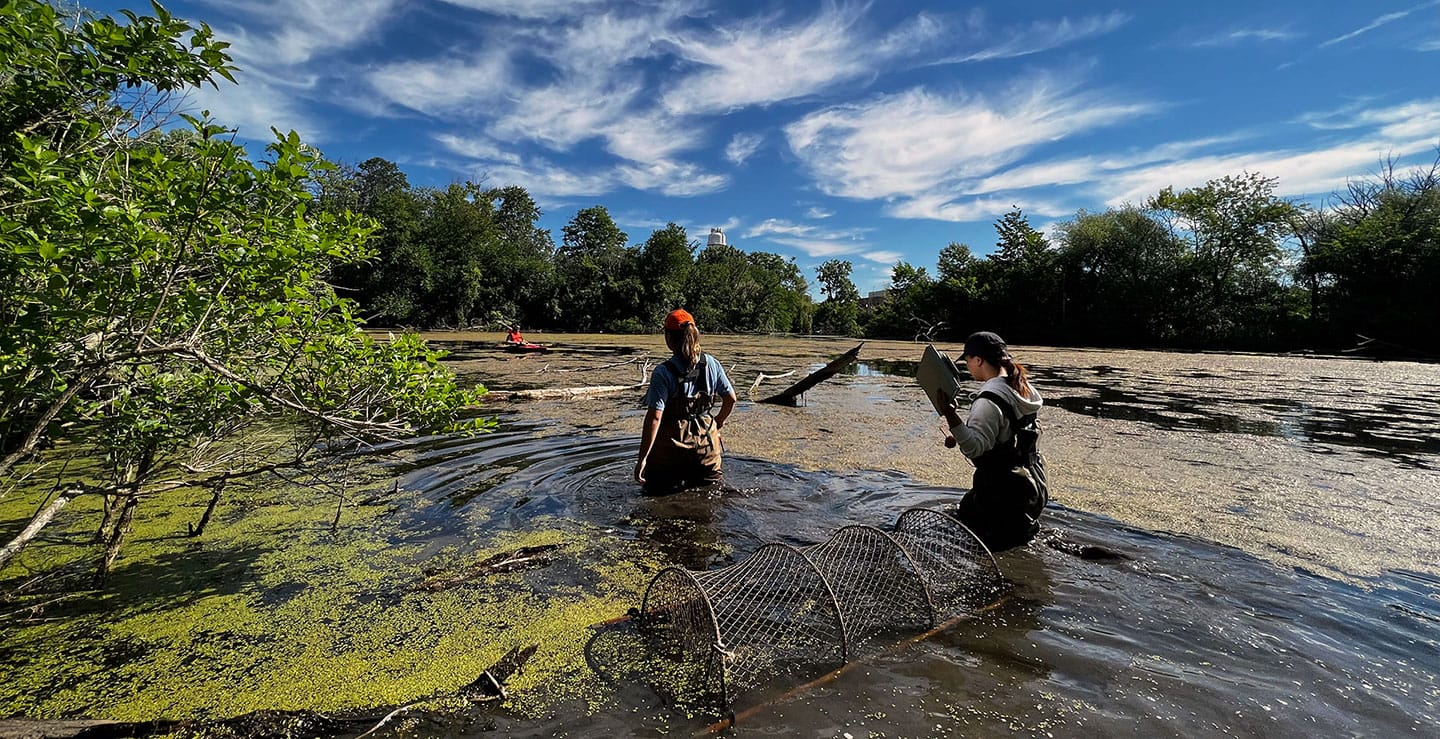Discover Your Ideal Biological Path at Benedictine University
At Benedictine University, our Biology program extends beyond traditional learning. Conduct cutting-edge research with renowned faculty, gain real-world experience in clinics and hospitals, explore nature at the Jurica-Suchy Museum, learn from dedicated professors, and receive ongoing support from faculty mentors throughout your journey.
Benedictine fosters a learning environment where aspiring biologists develop critical thinking and teamwork skills through active research and collaboration. This holistic approach equips students with a deep understanding of the biological world and prepares them for successful careers in research, healthcare, education, and environmental science.
Join our vibrant community of learners and educators and embark on a transformative journey of discovery at Benedictine University.
Unlock Your Biological Potential
A bachelor of science in biology opens up a wide range of career opportunities in various fields, including healthcare, research, education, and environmental science.
Here are some of the top career paths for individuals with a BS in biology based on salary potential, job growth, and overall demand:
- Medical Scientist: Research and develop new drugs, medical treatments, and diagnostic tools.
- Clinical Laboratory Scientist (CLS): Analyze and interpret patient samples to provide critical diagnostic information.
- Pharmaceutical Scientist: Conduct research and development in the pharmaceutical industry to create new drugs and therapies.
- Biomedical Engineer: Design and develop medical devices, prosthetics, and surgical instruments.
- Biochemist: Study the chemical processes that occur in living organisms.
Here are some of the top career opportunities for individuals with a BA in Biology, based on salary potential, job growth, and overall demand:
- Medical Laboratory Technician: Analyze samples under supervision to assist in diagnosis, growing field with average salary, requires laboratory skills and attention to detail.
- Clinical Research Assistant: Assist researchers in clinical trials, fastest growing field on this list with good salary, requires organizational skills and attention to detail.
- Research Assistant: Support researchers in diverse biology fields, average salary and job growth, requires strong scientific knowledge and analytical skills.
- Public Health Educator: Promote healthy lifestyles and prevent diseases, faster than average job growth with good salary, requires excellent communication skills and knowledge of public health principles.
- Science Teacher: Inspire future generations, good salary and average job growth, requires strong subject knowledge and excellent teaching skills.
What Our Graduates Have Done With This Degree
Our graduates matriculate into medical, dental and other health professional schools including Harvard University, Yale University, The University of Chicago and Northwestern University. Others choose to go straight into one of the many career fields seeking trained biologists.
Here is an example of some courses you may take in the Biology program:
- Engaged Learning Experience in Biology
- Vertebrate Embryology
- Comparative Animal Physiology
- Paleobiology
- Basic Endocrinology
Biology courses (BIOL):
Lisle undergraduate course desciptions
Mesa undergraduate course descriptions
Graduate course descriptions


